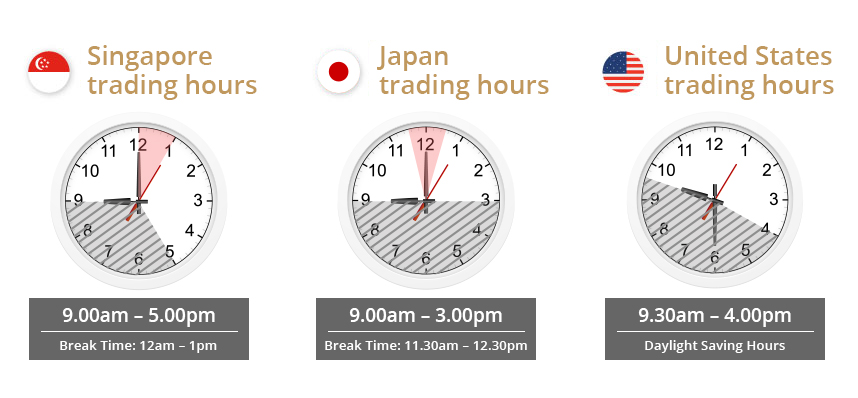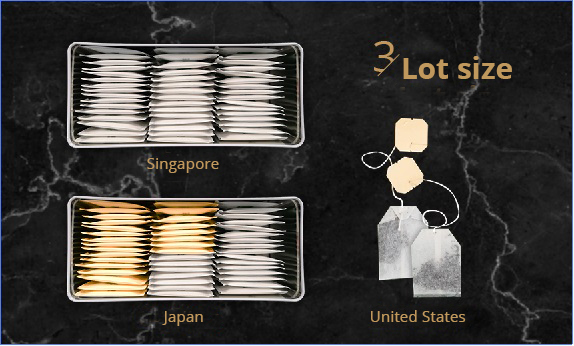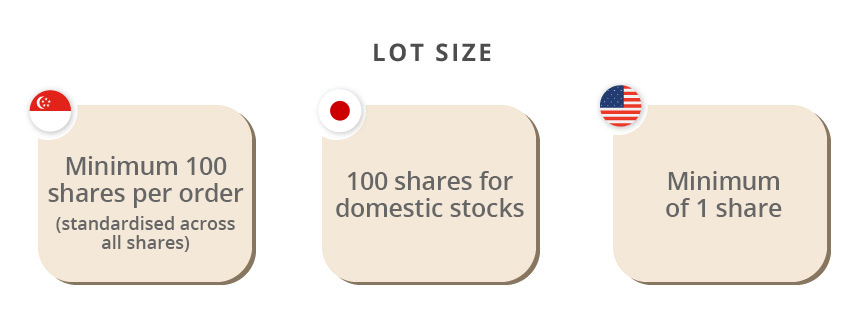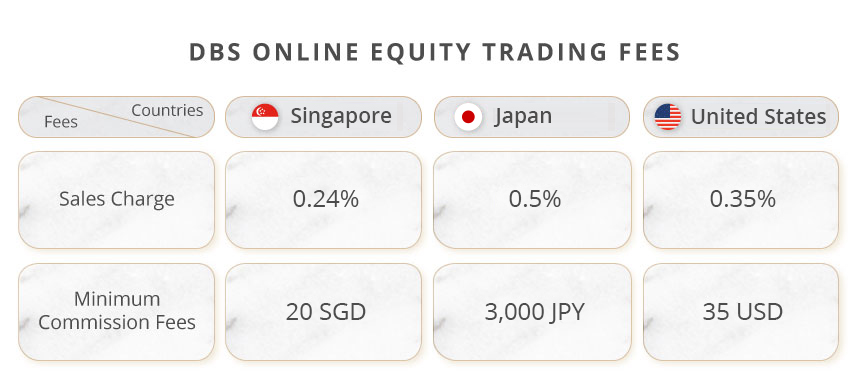If you are looking to up your investment ante by exploring other markets like Singapore, Japan or USA, there are some things you need to take note of before you begin.

Markets like Japan and USA (NYSE and Nasdaq) are among the top five countries with the largest stock markets in the world, while Singapore is among the top 25. The number of companies listed in the Japanese stock market has risen steadily to over 3,700 companies^, while USA remains home to big guns such as Facebook and Amazon, with Nasdaq trading over 3,300 stocks*, and NYSE listing over 2,300 companies* in its network. In Singapore, as of September 2020, there are 705 listed securities.
This gives you more choices to venture outside of the Hong Kong Exchanges (HKEx).
^ data as of Mar’21
* data as of Feb’21

Trading hours are very important when dabbling in the stock market. It’s important to take note of each market’s trading hours, as well as the time difference if it’s not in the same region.


Every stock market has their own rules on the minimum number of stocks you can trade each time. In Japan, the minimum Order Size Limit has been standardised to 100 shares for domestic stocks. In USA, there is no restriction on order sizes and you can buy as little as one share per trade. In Singapore, a minimum order size of one lot, or 100 stocks is required per trade.


Knowing the steps to trade is as important as understanding when to trade. Order types are instructions given to brokers to make the trade at a specific time or price, or both. Knowing the different order types will help you understand the value of your investments after the trade is made. The common order types are – Market Order, Limit Order and Auction Order.
Market Order
If you want to buy or sell a stock without any delay, you can place a market order. It allows you to buy or sell straight away at the best available price but does not guarantee a price. However, the price that you’re buying and selling at can deviate slightly from the last traded price, due to market changes.
Market orders are available in Singapore, Japan (depending on the condition for execution) and the USA.
Limit Order
By placing a limit order, you are stating the price at which you wish to buy or sell a stock. If the price is not met, your order will not be executed.
Enhanced Limit Order (ELO)
This is similar to a limit order, except that the ELO allows an order to be matched up to 10 prices at one time. Any unfilled quantity after matching will be converted into a Limit Order and placed in the price queue.
Market to Limit Order
Available in Japan, this is the limit order which is submitted without specifying a limit price, and will be executed against the best offer at the time of bidding. This becomes invalid if there is no best offer.

Brokerage firms vary in the fees they charge. Some local brokerages or trading platforms offer investments in the Japan, USA and/or Singapore stock markets, and have different sales charges per trade. DBS Online Equity Trading platform offers different online rates for Japan, USA and Singapore markets.


To start investing in global markets, you can open an online trading account. The DBS Wealth Management Account comes with a Multi-Currency Settlement Account, which allows you to monitor and manage your foreign exchange exposure as you trade in online equities overseas.
With all these in place, you are now ready to diversify your portfolio and perhaps dive into a new market to build up your investment pot.
Risk Disclosure and Important Notice
The information herein is for information only. DBS accepts no liability whatsoever for any direct, indirect or consequential losses or damages arising from or in connection with the use or reliance of this publication or its contents
Investment involves risks. The information provided is based on sources which DBS Bank Limited and DBS Bank (Hong Kong) Limited believe to be reliable but has not been independently verified. Any projections and opinions expressed herein are expressed solely as general market commentary and do not constitute solicitation, recommendation, investment advice, or guaranteed return. The above information does not constitute any offer or solicitation of offer to subscribe, transact or redeem any investment product. Past performances are not indicative of future performances. You should make investment decisions based on your own investment objective and experience, financial situation and particular needs. You should carefully read the product offering documentation, the account terms and conditions and the product terms and conditions for detailed product information and risk factors prior to making any investment. If you have any doubt on this material or any product offering documentation, you should seek independent professional advice.
Securities trading is an investment. The prices of stocks fluctuate, sometimes dramatically. The price of a stock may move up or down and may become valueless. It is as likely that losses will be incurred rather than profits made as a result of trading stocks. The investment decision is yours but you should not invest in any stock unless you have taken into account that the relevant stock is suitable for you having regard to your financial situation, investment experience and investment objectives.
Customers should be aware that the prices of the Callable Bull / Bear Contracts and Warrants may fall in value as rapidly as they may rise and holders may sustain a total loss of their investment. The Bank does not provide securities advisory service. Any person considering an investment should seek independent advice on the investment suitability when considered necessary.
Foreign exchange involves risk. Customers should note that foreign exchange may incur loss due to the fluctuation of exchange rate.
RMB currently may not be freely convertible and is subject to exchange controls and restrictions. There is no guarantee that RMB will not depreciate. If you convert Hong Kong Dollar or any other currency into RMB so as to invest in a RMB product and subsequently convert the RMB sale proceeds back into Hong Kong Dollar or any other currency, you may suffer a loss if RMB depreciates against Hong Kong Dollar or other currency.
The information provided above have not been reviewed by the Securities and Futures Commission of Hong Kong or any regulatory authority in Hong Kong.





